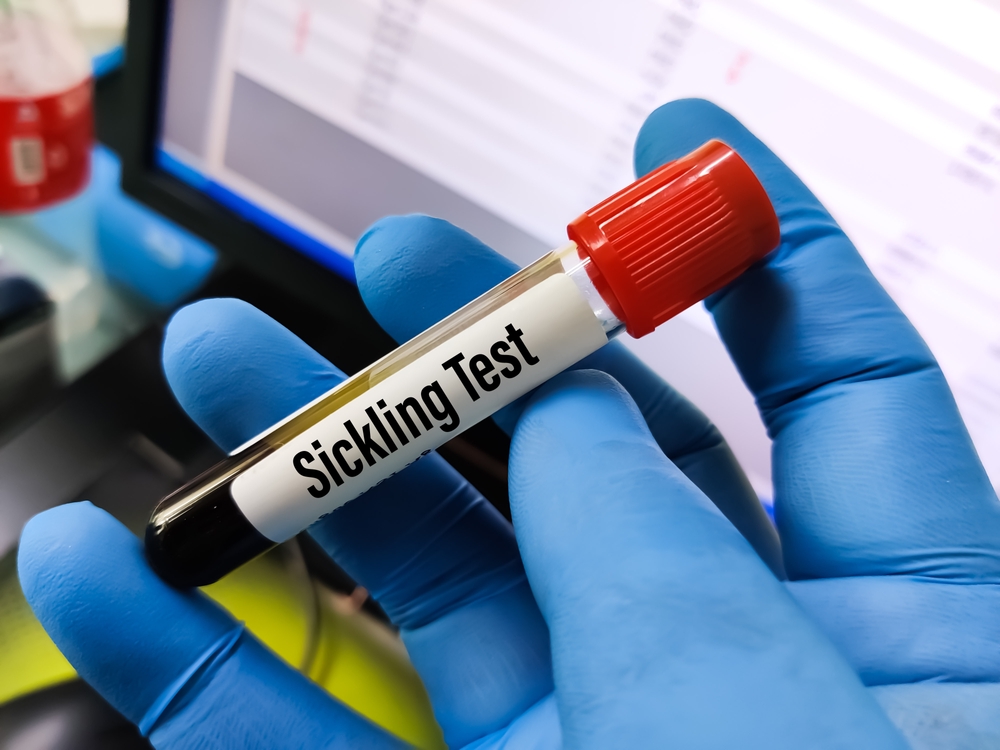The urgency of early detection
In recent years, the battle against sickle cell disease in Africa has seen tremendous progress, thanks to modern medical advances and the implementation of comprehensive screening programs. These initiatives are a beacon of hope for thousands of families facing the challenges posed by this genetic condition. The advent of early detection methods and the subsequent healthcare strategies are transforming the delivery of care and offering new possibilities for those affected by sickle cell disease across the continent.
Understanding screening impact
One of the most significant breakthroughs in the fight against sickle cell disease has been the implementation of newborn screening programs. These programs enable the early identification of children born with sickle cell disease, allowing for immediate intervention and the introduction of preventive measures. By detecting the disease at birth, doctors can initiate treatments earlier, thus dramatically improving survival rates and quality of life for affected children.
Newborn screening has proven to be a game-changer, particularly in regions with high rates of sickle cell disease. Early detection offers the opportunity to address the condition before it progresses to more severe stages, which in turn helps to minimize complications and improve long-term health outcomes. Across many African countries, these screening programs have made an enormous difference, providing not only a critical diagnosis but also access to vital healthcare services that might have otherwise been unavailable.
Regional healthcare transformation
A noteworthy initiative in the fight against sickle cell disease is the Consortium on Newborn Screening in Africa, which is reshaping the landscape of regional healthcare. This collaborative effort spans seven African nations, highlighting the power of coordinated medical intervention. By pooling resources and expertise, these countries have made significant strides in addressing sickle cell disease and improving healthcare outcomes for affected populations.
The consortium exemplifies how regional cooperation can lead to systemic change, benefiting a broader population than what could have been achieved through individual country efforts. The success of this initiative demonstrates that by working together, African nations can overcome healthcare challenges on a much larger scale, ensuring that vulnerable populations are not left behind in the pursuit of better health outcomes.
This initiative is not just about early detection but also about creating a comprehensive support system that ensures consistent care for those diagnosed with sickle cell disease. It is a model for how healthcare systems in Africa can be strengthened, showing that when resources and knowledge are shared, much greater progress can be made.
Treatment accessibility
Once sickle cell disease is identified through screening, it is essential to follow up with comprehensive care protocols to ensure affected children receive the necessary treatment. These care plans are vital in addressing the immediate medical needs of children with sickle cell disease and supporting their long-term health management. In many cases, early treatment and continued medical supervision can prevent many of the more severe complications associated with sickle cell disease.
The accessibility of treatments for children diagnosed with sickle cell disease has been vastly improved by the success of screening programs. In addition to immediate treatments, such as blood transfusions or pain management, long-term care strategies help to mitigate the impact of the disease on an individual’s life. Coordinated care helps ensure that children receive the support they need to thrive despite the challenges of living with sickle cell disease.
Treatment accessibility is a critical element of managing sickle cell disease. Without the proper medical care, those affected by the disease may face dire consequences. Screening programs play a pivotal role in ensuring that children have access to the treatments that can dramatically improve their quality of life, making the widespread implementation of these programs even more vital.
Community engagement strategies
While healthcare systems and treatment protocols are crucial, successful screening programs also rely heavily on community awareness and participation. Healthcare providers understand that for these initiatives to be effective, they must be integrated into the fabric of local communities. That’s why healthcare workers often work closely with community leaders to raise awareness about sickle cell disease, its impact, and the importance of early screening.
Community engagement is essential to the success of any public health program. In many African countries, where healthcare access can be limited, getting local communities to buy into these initiatives is critical. Health education programs help inform parents and caregivers about the significance of newborn screening, while also tackling any misconceptions or fears about the process. Through community mobilization, healthcare providers can ensure that screening programs are not only accessible but also accepted, leading to higher participation rates and better health outcomes.
The effectiveness of these programs is heavily influenced by the level of trust and collaboration within local communities. When communities are fully engaged and educated about the benefits of early screening, they are more likely to support the initiatives, which in turn increases the likelihood of detecting and treating sickle cell disease early.
Healthcare system integration
The implementation of newborn screening programs has also contributed to the strengthening of existing healthcare infrastructures across Africa. By incorporating screening initiatives into the wider healthcare system, countries are building sustainable frameworks for ongoing disease management and patient support. This integration ensures that sickle cell disease is not just a one-time diagnosis but a lifelong management challenge that is addressed in a consistent, reliable manner.
Integrating these programs into national healthcare systems has paved the way for more effective and coordinated care. It’s not just about identifying the disease; it’s about creating a long-term support system that can provide treatment, counseling, and follow-up care for patients. By strengthening healthcare infrastructure and integrating these screening programs, African nations are making strides toward more equitable and effective healthcare delivery.
The integration of screening into national healthcare systems is also crucial for ensuring sustainability. With well-established systems in place, healthcare providers can continue to serve affected individuals, ensuring they receive the care and attention they need as they grow older.
Future program development
Looking ahead, the future of newborn screening programs in Africa appears promising. While significant progress has been made, challenges remain in expanding these programs to reach even more children across the continent. Ongoing research and strategic planning are focused on overcoming these challenges, from addressing logistical barriers to securing adequate funding for expansion.
As healthcare systems evolve and resources become more readily available, the scope of these screening programs is expected to grow. The long-term goal is to ensure that every newborn has access to early screening for sickle cell disease, giving every child a fighting chance to thrive. Through continued development and investment in these programs, African nations can achieve a future where sickle cell disease is no longer a life-limiting condition but a manageable health challenge.
In conclusion, the expansion and success of newborn screening programs across Africa are transforming the way sickle cell disease is addressed. These programs offer new hope for families, ensuring early detection, timely treatment, and long-term support for affected children. With continued investment in healthcare infrastructure, community engagement, and program development, Africa is poised to make significant strides in the fight against sickle cell disease, improving health outcomes and quality of life for countless individuals.

















